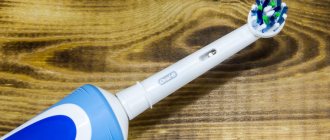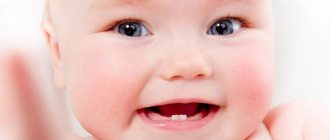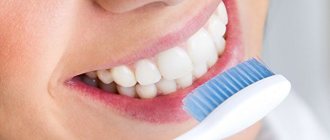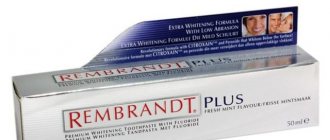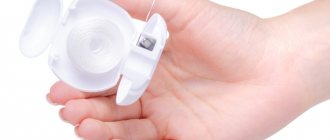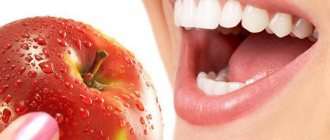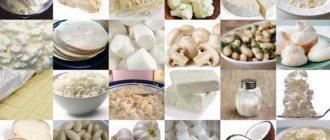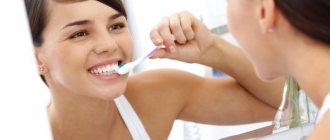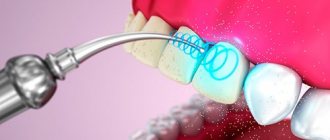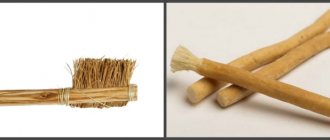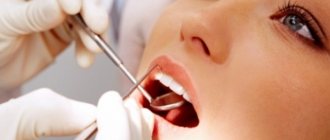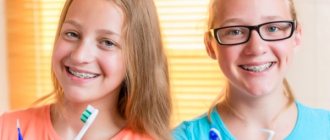Since childhood, everyone knows that you need to brush your teeth every day, otherwise a visit to the dentist is not far off, and it is far from preventive. And if some people neglect evening brushing out of fatigue or laziness, then every self-respecting person brushes his teeth in the morning. And here a reasonable question arises: when is it correct to brush your teeth in the morning - before or after eating?
So before or after eating?
Here the opinions of dentists often differ. There are adherents of the opinion that it is necessary to clean out the layer of bacteria that has formed overnight in order to prevent it from entering the stomach. Others say that hydrochloric acid will not allow these bacteria to harm the body, but after breakfast there will be a lot of food debris left between the teeth, which will decompose until the next teeth cleaning. Still others seriously believe that ideally it is necessary to clean both before and after breakfast. But they also have authority in the form of dentists, who say that using a toothbrush is often also harmful.
And if you dig deeper, all methods have advantages. Therefore, when choosing when to brush your teeth in the morning - before or after meals, you need to weigh the pros and cons. Indeed, in addition to preferences and views, it also depends on some individual characteristics, which the dentist will suggest after examining the oral cavity. For example, on the thickness of the enamel and the condition of the gums.
What can happen if you brush your teeth irregularly or poorly?
- Caries will appear.
Plaque on teeth constantly attracts food particles and bacteria. If you don’t brush your teeth, microorganisms will feel so comfortable that already on the third day their number in the oral cavity will exceed the entire population of the Earth. All these bacteria will begin to secrete acids that will gradually destroy the enamel. This will allow the infection to penetrate into the tooth and tooth decay will begin. - The color of the teeth will change.
All foods, even green tea, contain dyes. Because of them, the plaque becomes pigmented, that is, stained, and the teeth darken as a result. Professional oral hygiene will help restore them to their natural shade. - Tartars form faster.
The soft film on the enamel mineralizes over time and turns into tartar. In fact, this is an inevitable process, since it is impossible to remove all plaque from the surface of each tooth even with the simultaneous use of a toothbrush, irrigator and floss. But those who brush their teeth thoroughly and regularly at home have less hard deposits and they form more slowly. - There will be a bad breath.
Microbes living in plaque emit gases with a very unpleasant odor. If you don’t remove biofilm from the surface of your teeth well, you can forget about fresh breath. - Your gums will become inflamed.
Gradually, tartar penetrates under the gums, and if they are not removed using ultrasound, then over time an inflammatory process will begin in the soft tissues - bleeding, pain and bad breath will appear. - Your teeth will become sensitive.
If you do not pay attention to gum inflammation, over time the soft tissues will cease to be elastic, they will begin to decline, and the teeth will appear longer because their roots will be exposed. At this point, you will have to exclude everything sweet, salty, sour, cold and hot from your diet, as tooth sensitivity will increase. - Teeth will lose stability.
Due to the severe inflammatory process, the tissue that holds the teeth in the socket is destroyed. They become unstable and may simply fall out over time.
Even incorrect movements when brushing your teeth and excessive pressure on the toothbrush can lead to abrasion of the enamel and the appearance of defects on it. Consult a hygienist to teach you the proper technique for brushing your teeth. This is an excellent prevention of caries and other oral diseases.
The benefits of cleansing before breakfast
Among all the options for when to brush your teeth in the morning - before or after meals, this is chosen by the majority. Surely the main reason lies in the fact that this is simply a pleasant element of the awakening ritual that charges you with a good mood.
Here are other compelling arguments in support of brushing your teeth before breakfast:
- fresh breath at breakfast;
- destruction of bacterial plaque formed overnight;
- formation of a protective fluoride layer.
Perhaps this is where all the pros end and the cons begin.
Is tooth decay contagious?
What causes caries? First of all, pathogenic microflora, which can be transmitted by contact. Therefore, it would be logical to call caries a disease that can be infected. However, it must be remembered that the presence of pathogenic microflora is not the caries itself. Tooth decay is the result of poor oral hygiene and develops at different rates for everyone. So the bacteria that cause caries are actually transmitted by contact, but caries itself is not.
What you are most likely to “catch” caries from is a “carisogenic diet”. Ever wondered why children have so many cavities? The fact is that all sweets beloved by children contain sugar, which favors the growth of microflora. The same applies to carbonated drinks. Soda contains carbon dioxide, and if you regularly consume these drinks, the enamel is damaged, and caries will not bypass you.
Cons of brushing before breakfast
When choosing when to brush your teeth in the morning - before or after meals, you need to take into account the results of research. More recently, research from the US Academy of General Dentistry has shown that brushing your teeth immediately after eating or drinking actually destroys dentin. This happens because this layer of tooth enamel is very vulnerable immediately after eating food, especially acidic food. This vulnerability goes away approximately 10-20 minutes after eating, depending on how aggressive the food was.
The most popular argument of those who advocate brushing their teeth before breakfast (that bacteria will enter the esophagus) is broken by a couple of scientific facts. First, the stomach contains hydrochloric acid, which will kill most non-dangerous bacteria. And secondly, since the oral cavity was isolated at night, dangerous bacteria could not penetrate there, and those that multiplied are part of the microflora. Provided that the person brushed his teeth in the evening and did not eat anything after that. That's why you shouldn't neglect brushing your teeth in the evening.
Reasons to brush your teeth before breakfast
- During sleep, salivation decreases, which means that microbes accumulate and actively multiply in the oral cavity, and acidity increases. If a person does not clean the enamel in the morning before eating, then bacteria along with food will enter the esophagus.
© DepositPhotos - In the morning, many people experience an unpleasant taste, a bitter taste in their mouth, or feel that their breath is bad. In such a situation, of course, you want to first restore the normal microflora of the oral cavity, and only then eat food.
- Acids contained in foods and drinks have a negative effect on enamel. When removing plaque, the bristles of the brush damage the protective coating; acid molecules penetrate into deeper layers, which can lead to dentin destruction.
After eating, when consuming acidic foods (especially apples), carbonated drinks, the sensitivity of the enamel increases, and mechanical stress only aggravates the situation.
© DepositPhotos - Fluoride-containing paste strengthens the enamel and supplies it with necessary minerals, thereby providing it with protection during food intake.
Benefits of brushing after breakfast
But brushing your teeth after breakfast, of course, is not useless; it also has its advantages.
- If you had foods with a strong smell for breakfast, it won’t hurt to freshen your mouth.
- Bacteria, which have multiplied in huge numbers overnight, will not enter the esophagus.
- This helps maintain the whiteness of teeth.
- The taste of food will not change in any way due to brushing your teeth.
But as you can see, all these advantages relate mainly to personal feelings, and not to dental health.
When is professional teeth cleaning required?
Professional hygiene in the dentist’s office is usually carried out 1-2 times a year for any patient who has healthy teeth and takes sufficient care of them. People who are addicted to smoking or who abuse sweet foods, strong tea, wine or coffee may need to have their teeth professionally cleaned of plaque every 3 months. Sometimes a doctor prescribes unscheduled cleaning before installing braces, treating caries, or installing prosthetic structures.
Sources:
- https://www.PravChelny.ru/useful/?ID=661
- https://ZubNeBoley.ru/gigiena/pravilnaya-chistka-zubov-do-zavtraka-ili-posle/
- https://StomaGet.ru/gigiena/skolko-nado-chistit-zuby
- https://zen.yandex.com/media/id/5dedc50d0be00a00b1abf3b5/skolko-raz-chistit-zuby-delat-eto-do-ili-posle-edy-i-kak-dolgo-5e1807991febd400ae3b54ea?feed_exp=ordinary_feed&from=channel&rid= 348790507.441.1584804369101.80599&integration=publishers_platform_yandex&secdata=CIjipJT8LSABMAJQDw%3D%3D
- https://nujnoli.ru/nuzhno-li-chistit-zuby-dva-raza-v-den/
- https://ZubNeBoley.ru/gigiena/otbelivanie-i-chistka/skolko-raz-v-den-nado-chistit-zuby/
- https://zen.yandex.ru/media/id/595f771257906a9cc714b1cb/5c1b856e71aad100a9e2d991
- https://dentamed.club/gigiena/chistka/skolko-raz-v-den-chist-zub.html
Is frequent cleaning of the mouth beneficial?
The fact is that brushing your teeth after every meal, and especially with an electric toothbrush, can cause your teeth and gums to become sensitive and covered with small scratches. And in addition to the fact that food debris stuck between teeth is a favorable environment for the development of bacteria, food can also cause harm to tooth enamel and gums. For example, fruit juices contain acids, and wine and coffee contain permanent dyes. And therefore, gentle and gentle cleansing after every meal and even drinks is not some kind of tediousness, but quite adequate care for the health and beauty of your teeth.
According to the advice of dentists, you need to brush your teeth only once in the morning before or after meals, and the second time before going to bed. What is more important is not the frequency, but the thoroughness and compliance with all cleaning rules. The rest of the time, it is worth using more gentle methods of cleansing the oral cavity. By all rights, this means that, in addition to the toothbrush, the daily cavity cleansing ritual should include the following steps:
- Thoroughly clean your teeth using a brush and toothpaste in a circular motion strictly according to the pattern for 2 minutes.
- Cleaning the tongue using a special brush or attachment.
- Removing all food debris using dental floss or irrigator.
- Using mouthwash.
Such thorough cleaning should only be done once a day, namely before bed. If you use an electric toothbrush, you should also use it once a day, and the rest of the times - a regular one.
What's really going on?
Plaque constantly forms on the teeth. It appears due to the active work of bacteria, the maturation of which lasts for approximately 24 hours. These bacteria produce acid constantly, but the process speeds up when you eat something. This is why it is so important to brush your teeth at least twice a day. This will remove the acid and its byproducts, which destroy tooth enamel and lead to tooth decay. The longer plaque remains on your teeth and the longer bacteria feed on your food, the more time you will need to spend in the dentist's office.
To be honest, the rule that you should brush your teeth immediately after waking up and immediately before going to bed was invented by dentists in order to develop the necessary habit in their patients. Accordingly, you can brush your teeth at any time, you just need to follow the general rule - at least twice within 24 hours. As for doing this hygiene routine before bed, it will also help make life more comfortable for your spouse, partner, or just your roommate.
Loving ready-made food is not harmful: 3 myths about the freshness and taste of ready-made store food
The original facade includes not only diagonal cuts, but also shutters
Libras are advised to stop and rest: how the full moon will affect the signs
How often should you brush your teeth?
In the past, most dentists recommended brushing your teeth after every meal. But now more and more research shows that it does more harm than good. And besides, in working conditions this is practically impossible. Therefore, full brushing with a toothbrush using toothpaste can be replaced with lighter manipulations.
Brushing your teeth after eating
Food fragments stuck between teeth are a fairly favorable environment for the proliferation of microbes. As a result, this leads to the fact that very soon after breakfast a person loses the freshness of his breath. Subsequently, inflammatory processes develop that affect the gums.
Meanwhile, hard food often scratches soft tissues and destroys the mucous membranes in the oral cavity, but the antibacterial agents included in the toothpaste will prevent microorganisms from infecting such injuries. It is also known that after cleaning, the taste of food becomes less pleasant.
At night, foreign substances cannot enter the mouth in principle. Moreover, the bacteria present there are an integral part of the microflora and do not pose a health hazard. Therefore, there is no difference between the microbes that live in the mouth during the day and those that appear there at night.
However, some products cause yellowing of the enamel. These include:
- Black tea;
- coffee;
- chocolate.
Toothpaste can completely eliminate this effect.
What can replace brushing your teeth?
The desire to brush your teeth immediately after waking up is understandable. Despite the fact that during sleep food remnants could not stick to the teeth, in the morning there is always staleness in the mouth. This happens because even if your teeth were perfectly cleaned before going to bed, bacteria would still multiply in your mouth.
But in order to freshen your breath, it is not necessary to thoroughly brush your teeth in the morning - before or after meals - with a toothbrush. This can be done in ways that are gentler on the enamel. For example, using a mouthwash before breakfast. And recently, an even more effective product for similar purposes has appeared on the market - dental cleaning foam. Its advantage over mouthwash is that the foam structure penetrates plaque and hard-to-reach places better. Well, don't discount good old sugar-free chewing gum.
Don't rinse your teeth before bed
At night, a person produces less saliva than during the day. This makes teeth more vulnerable and susceptible to acid attacks. For this reason, it is important to remove food debris from your teeth before going to bed to prevent bacteria from growing during the night. After brushing your teeth at night, do not eat or drink anything other than water.
You should not rinse your mouth with water or mouthwash after this evening ritual because this washes the fluoride off your teeth. If you learn not to rinse your mouth after brushing, you can reduce your exposure to bacteria by 25%.
